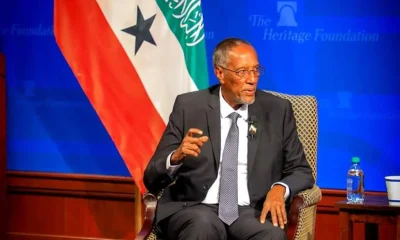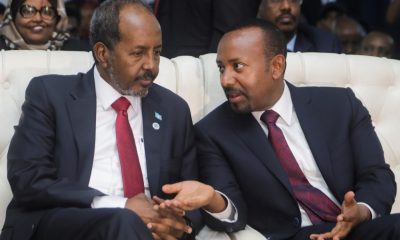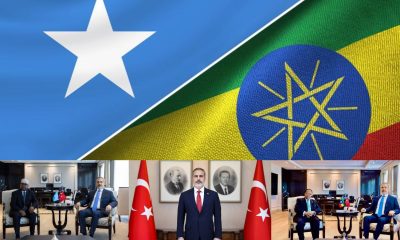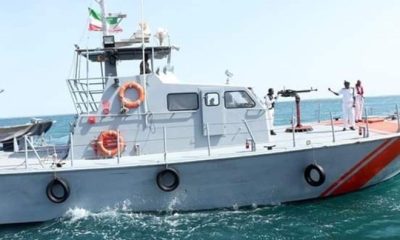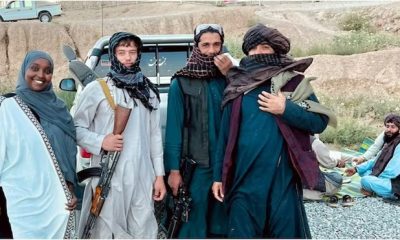Opinion
Urgent Call for Legislation to Protect the Honor of Somaliland’s Founding Fathers

Open Letter to the Somaliland Parliament
Dear Honorable Members of the Somaliland Parliament,
I write to you today with a matter of utmost importance that affects the very fabric of our nation. The sacrifices and contributions of the Somaliland National Movement (SNM) mujahedeen, who fought bravely for the freedom and security we enjoy today, must be honored and protected by our laws. Among these heroic individuals, the current President of Somaliland, Muse Bihi Abdi, and the Minister of Interior, Mohamed Kahin Ahmed, stand as the foremost founding fathers of our nation.
Lately, there has been a disturbing trend of young individuals, claiming to be politicians, disrespecting and insulting these esteemed figures. Such actions not only tarnish the legacy of our freedom fighters but also threaten the unity and stability of Somaliland.
I urge you, the esteemed members of the Somaliland Parliament, to take swift and decisive action by enacting a law that criminalizes any form of insult or defamation against the SNM mujahedeen. This law should mandate strict penalties for those who dare to dishonor the heroes who sacrificed so much for our nation’s independence.
The freedom and security we cherish in Somaliland today were hard-earned through the blood, sweat, and tears of these brave individuals. It is our collective duty to ensure that their legacy is preserved and respected. By implementing this law, we will send a clear message that Somaliland values and honors its founding fathers and will not tolerate any attempts to undermine their contributions.
Failure to enact such legislation may result in unrest, as the descendants of these heroic figures may feel compelled to defend their honor through unlawful means. It is our responsibility to prevent such outcomes by providing a legal framework that upholds justice and respect for those who have given us the gift of freedom.
I implore you to act swiftly and decisively. Protect the honor of our founding fathers and ensure that their legacy remains untarnished for generations to come. The future of Somaliland depends on the actions we take today to safeguard our past.
Thank you for your attention to this critical matter.
Sincerely,
Somalilander
Political Warfare: The Waddani Party’s Systematic Demonization of President Muse Bihi
Opinion
Advice to the Government of Somaliland Regarding International Relations and Security
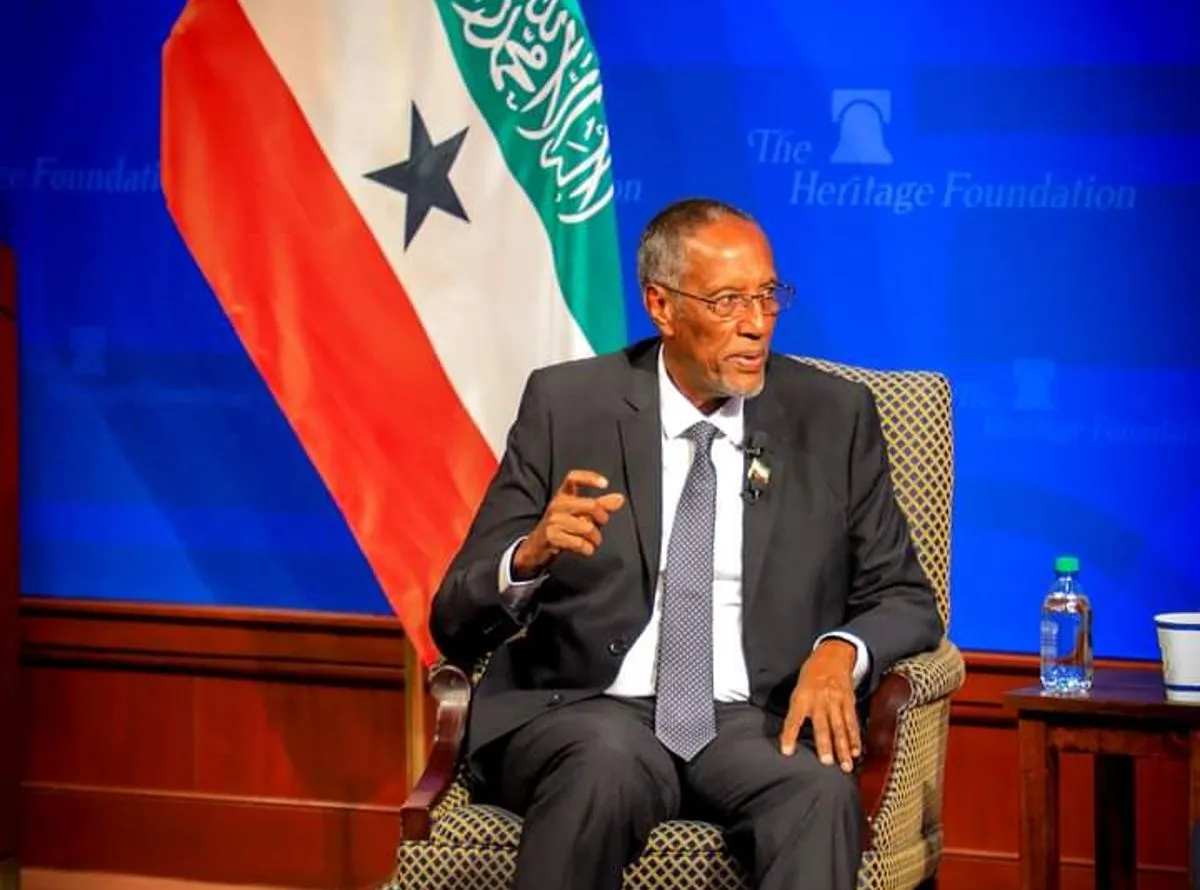
Opinion
The Red Sea Crises – Opinion

“The Red Sea Crises: Environmental Oil Split and Economic Fallout from the Houthi Attack on the Oil Tanker MV Soundiodine”
The Red Sea, a crucial maritime corridor linking the Mediterranean Sea and the Indian Ocean, has been the site of numerous incidents threatening its environmental and economic stability. The most recent and severe of these was the attack on the oil tanker MV Soundiodine by Houthi rebels on August 21, 2024. This assault resulted in a catastrophic oil spill, inflicting significant harm on the marine environment, disrupting economic activities, and exacerbating regional tensions. This event underscores the inherent vulnerabilities of the region and the profound consequences of such aggressive actions.
The attack occurred near the Bab-el-Mandeb Strait, a key waterway through which millions of barrels of oil are transported daily. The Houthis, a militant group originating from Yemen, have previously targeted Red Sea shipping routes amid their broader regional conflict. In this instance, a missile strike breached the hull of the MV Soundiodine, leading to a massive release of crude oil into the surrounding waters. The extent of the spill was considerable, with thousands of barrels of oil estimated to have been discharged, rapidly creating a vast slick across the sea.
The environmental repercussions of the MV Soundiodine spill have been severe. The Red Sea hosts diverse marine ecosystems, including coral reefs, mangroves, and seagrass beds, all of which are highly sensitive to oil contamination. The spill has wreaked havoc on coral reefs, which are vital for marine biodiversity. The oil slick has covered extensive areas of reef, obstructing sunlight and diminishing oxygen levels crucial for coral health. Consequently, many coral colonies have sustained irreversible damage, leading to a dramatic loss of marine life dependent on these ecosystems.
Beyond coral reefs, the oil spill has had dire effects on various marine species. Fish populations, already under threat from overfishing and habitat loss, have been further devastated by the oil’s toxic impact. Disruption to breeding grounds and nursery areas has led to a decline in fish stocks, potentially jeopardizing the region’s fisheries for the long term. Seabirds, reliant on the coastal waters of the Red Sea for sustenance, have also suffered significantly. Oil-coated feathers have compromised their buoyancy and ability to regulate body temperature, resulting in hypothermia, drowning, and starvation. Marine mammals, including dolphins and dugongs, face increased risks of respiratory issues, skin lesions, and reproductive failures due to exposure to contaminated waters.
The spill has heavily impacted coastal areas in Yemen, Saudi Arabia, and Sudan. Oil has washed ashore, contaminating beaches, mangroves, and other sensitive coastal habitats. These areas play a crucial role in shoreline protection, marine life nursery grounds, and supporting local livelihoods. The contamination has led to the death of mangrove trees, essential for coastal stability and biodiversity, further diminishing the region’s ecological resilience.
Economically, the MV Soundiodine oil spill has had substantial repercussions for the Red Sea’s bordering countries and the global economy. The Red Sea is a vital route for oil and goods transportation, and any disruption has immediate global economic effects. The spill has necessitated the temporary closure of some shipping lanes, causing delays in oil and commodity deliveries. Increased uncertainty regarding the security of Red Sea shipping routes has driven up insurance premiums for vessels, escalating maritime transport costs. These disruptions have contributed to volatility in global oil markets, with prices fluctuating in response to fears of supply shortages.
The oil spill’s impact on local economies has been profound, particularly in Egypt and Saudi Arabia. A significant decline in tourism—a primary income source for these countries—has resulted from the oil contamination of beaches and coastal waters. Coastal resorts, once popular with millions of visitors, have seen a drastic drop in tourism, causing economic hardship and job losses in communities dependent on this industry. Similarly, the fishing industry, crucial for food and income in these coastal areas, has been severely affected, with declines in fish stocks and the closure of fishing areas.
The cleanup efforts for the MV Soundiodine spill have been both extensive and costly, with estimates reaching hundreds of millions of dollars. The complexity of the Red Sea’s marine and coastal environments has made the cleanup particularly challenging, especially in delicate habitats like coral reefs and mangroves. Recovery for the affected ecosystems may take years, if not decades. While the burden of cleanup costs falls on the affected countries, there are ongoing efforts to seek compensation from those responsible.
Geopolitically, the attack on the MV Soundiodine has significant implications. The Red Sea’s strategic importance has heightened tensions among regional powers, such as Saudi Arabia, Iran, and Egypt, as well as global powers including the United States and China. Calls for increased security measures, including proposals for a larger military presence, have emerged to protect shipping lanes. However, such measures could escalate the risk of further conflicts involving regional and global powers.
The international community has expressed strong disapproval and concern following the MV Soundiodine incident. Nations with significant interests in the Red Sea, particularly those reliant on the Bab-el-Mandeb Strait for oil transportation, are alarmed by the vulnerability of this crucial maritime route. Diplomatic efforts are underway to address security concerns, with proposals for enhanced international collaboration to monitor and safeguard the region’s shipping lanes. However, the complex political landscape complicates the implementation of effective solutions. The incident has highlighted the need for stringent international regulations and enforcement to prevent future attacks and ensure accountability for environmental and economic damages.
In summary, the assault on the MV Soundiodine and the resulting oil spill have had profound and far-reaching consequences. The severe environmental damage to the Red Sea’s unique marine and coastal ecosystems has lasting effects on biodiversity and habitat integrity. Economically, the spill has disrupted both local and global markets, leading to substantial cleanup costs and economic hardship. Geopolitically, the incident has intensified tensions in an already volatile region, underscoring the interconnected nature of environmental, economic, and security challenges in the Red Sea. The MV Soundiodine spill serves as a stark reminder of the need for coordinated international efforts to address and mitigate such crises.
Thank you for your attention to this important matter.
Sincerely,
Mahad Ahmed
Independent Maritime Security Advisor
Hargeisa, Somaliland
Email: mahaddayr@gmail.com
New Footage Reveals the Houthis’ Dangerous Tactics in the Red Sea
Pentagon Sounds Alarm Over Leaking Red Sea Tanker Amid Houthi Attacks
Houthi Attacks in Red Sea Trigger Somali Piracy Resurgence, Says EU Naval Chief
Analysis
Beauty in the Crossfire: Miss Somalia Pageant Amid Violence

Amid Explosions and Controversy, Somali Women Defy Odds in Groundbreaking Beauty Pageant
On a night when most of Somalia tuned in to the Euro football final, a very different kind of spectacle unfolded at Mogadishu’s Elite Hotel. Hundreds gathered to witness the Miss Somalia pageant, a daring celebration of beauty and resilience in one of the world’s most dangerous places to be a woman. Just a kilometer away, the grim reality of Somali life was underscored by a car bomb explosion that killed five and injured twenty. The militant group al-Shabab, notorious for its reign of terror over Somalia, claimed responsibility for the attack.
The juxtaposition of a beauty pageant with such violence highlights the schizophrenic nature of life in Somalia. While pageant contestants paraded in glamorous gowns, the nearby explosion shattered the night, a stark reminder of the pervasive threat of terrorism. This contrast paints a vivid picture of a nation grappling with its identity and future.
Hani Abdi Gas, founded the competition in 2021. In a country where Islamist militants and conservative traditions dominate, her initiative is nothing short of revolutionary. Gas, who grew up in the Dadaab refugee camp in Kenya before returning to Somalia in 2020, sees the pageant as more than a beauty contest. It’s a platform for lifting women’s voices, fostering unity, and empowering Somali women.
Gas believes that Somalia, long deemed one of the worst places to be a woman, is ready to join the rest of the world in celebrating female beauty and aspiration. “I want to celebrate the aspirations of women from diverse backgrounds, build their confidence, and give them a chance to showcase Somali culture worldwide,” she said.
This year’s contestants reflected this diversity. Among them was a policewoman, a powerful symbol of women breaking barriers in a traditionally male-dominated society. However, not everyone was pleased. Many Somalis view beauty pageants as affronts to their culture and religion. Clan leader Ahmed Abdi Halane expressed disgust, saying, “Such things are against our culture and our religion. If a girl wears tight clothes and appears on stage, it will bring shame upon her family and her clan. Women are supposed to stay at home and wear modest clothes.”
Some women also oppose the pageant. Sabrina, a student, criticized the contestants for appearing in public without covering their necks, saying, “It is good to support the Somali youth but not in ways that conflict with our religion.”
Despite these criticisms, the pageant proceeded with its vibrant display of Somali culture. Aisha Ikow, a 24-year-old university student and make-up artist, was crowned Miss Somalia, taking home a $1,000 prize. Ikow, representing South-West state, vowed to use her platform to combat early marriage and promote girls’ education. “The competition celebrates Somali culture and beauty while shaping a brighter future for women,” she said.
The judging panel, which included Miss Somalia 2022 and a representative from the Ministry of Youth, found it hard to choose a winner. They assessed contestants on physical beauty, public speaking, and stage presence. An online vote, costing $1 per vote, funded the event and future international pageant participation.
The glitzy event in a luxury hotel contrasted sharply with the harsh realities faced by most Somali women. Four million Somalis, a quarter of the population, are internally displaced, with up to 80% being women. The UN ranks Somalia near the bottom on the Gender Inequality Index, with alarming rates of gender-based violence and female genital mutilation. Traditional practices still dictate that a rapist must marry his victim, and legal protections for women are severely lacking.
Despite these challenges, the Miss Somalia pageant signifies a slow but significant change. The fact that such an event could be held in Mogadishu, even amid nearby violence, indicates a shift in societal attitudes and an improvement in security.
The crowd at the Elite Hotel stayed until the early hours, undeterred by the attack’s proximity. They were engrossed in the pageant, the sound of the explosion drowned out by the waves crashing on the nearby beach.
In a nation torn by conflict and conservative values, the Miss Somalia pageant stands as a beacon of hope. It is a testament to the resilience of Somali women and their determination to carve out spaces of empowerment and celebration. As Somalia continues to navigate its complex identity, events like these are crucial in shaping a more inclusive and progressive future.
Kiin Hassan Fakat, reporting with Bilan Media, and Mary Harper, author of two books on Somalia, provide a lens into this transformative moment, capturing the courage and aspirations of Somali women amidst a backdrop of turmoil.
EDITORIAL
Embracing the Underdog Spirit: A Call for Abdulahi Darawal and All Those Denied

Defying Odds, Challenging Expectations, and Seizing Dreams in Somaliland’s Political Arena
BY SANCAANI III:
To those who have known the sting of rejection, the weight of discrimination, and the agony of being denied a seat at the table, this message is for you. It’s for the fighters, the dreamers, and the relentless souls who refuse to be confined by society’s limitations. Today, we stand with Abdulahi IIman Darawal, the embodiment of resilience and determination, as he charts a path forward despite the obstacles in his way.
Abdulahi IIman Darawal, the chairman of the Horseed political party, has faced a relentless barrage of discrimination since 2012. But his journey is not defined by the setbacks he has encountered; rather, it is a testament to the indomitable spirit of the underdog, the unwavering belief that greatness can be achieved against all odds.
For those who have been written off, misunderstood, and told they wouldn’t make it, Darawal’s story serves as a beacon of hope. It’s a reminder that adversity is not a barrier to success but a catalyst for greatness. In the face of doubt and fear, Darawal has remained steadfast in his pursuit of a better future for Somaliland.

As an underdog, Darawal has been told he’s not enough, that he’s too small, too slow, too inexperienced. But therein lies the beauty of being an underdog – there’s nothing to lose, only everything to gain. Every setback, every rejection, fuels the fire within, propelling Darawal forward on his quest for change.
The underdog mentality is not a disadvantage; it’s a source of strength. It’s about turning setbacks into fuel, using adversity as a stepping stone to greatness. Darawal’s journey mirrors that of some of the most successful individuals in the world – those who started from nothing, overlooked and underestimated, but rose to the top through sheer determination and resilience.
In the face of discrimination and adversity, Darawal stands tall, armed with nothing but his dreams and his unwavering determination. He refuses to let setbacks define him, to let others’ opinions shape his reality. Instead, he harnesses the power of the underdog mentality – the hunger, the drive, the willingness to do whatever it takes to achieve his dreams.
To Abdulahi IIman Darawal and all those who have been overlooked, underestimated, and counted out, remember this: the underdog always has the advantage because they’ve got nothing to lose and everything to gain. It’s time to embrace the underdog mentality, to climb that hill, to prove everyone wrong, and to show the world what you’re made of.
In the face of adversity, in the face of everyone who said you couldn’t, arm yourself with the underdog spirit and unleash your full potential. Abdulahi IIman Darawal, and all those denied, the time is now to seize your dreams, defy expectations, and write your own destiny. The world is waiting – go out there and claim what’s rightfully yours.
-
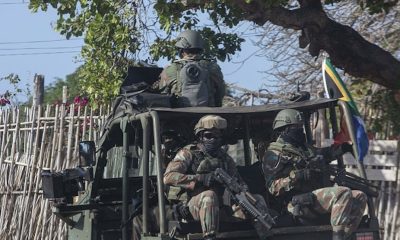
 Editor's Pick5 months ago
Editor's Pick5 months agoJihadism in Mozambique: southern African forces are leaving with mixed results
-
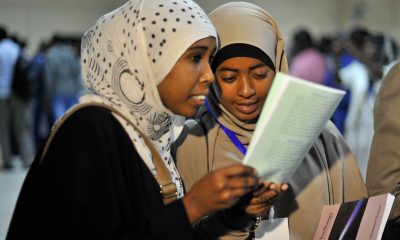
 Health5 months ago
Health5 months agoFinding Wholeness: A Woman’s Story of Overcoming an Eating Disorder
-
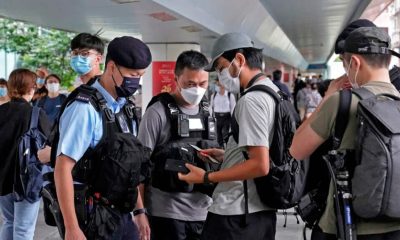
 Top stories5 months ago
Top stories5 months agoReport Exposes Surveillance and Harassment of Journalists Covering China
-

 EDITORIAL5 months ago
EDITORIAL5 months agoEmbracing the Underdog Spirit: A Call for Abdulahi Darawal and All Those Denied
-
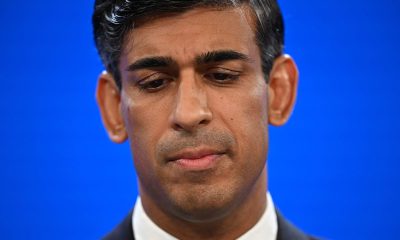
 Analysis5 months ago
Analysis5 months agoEverything seems to be going wrong for Rishi Sunak
-
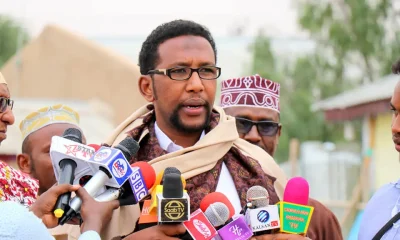
 Top stories4 months ago
Top stories4 months agoShowdown in Hargeisa: Mayor Mooge Locks Horns with Critic Batuun Over Local Council Arrests
-

 Editor's Pick4 months ago
Editor's Pick4 months agoVampire Facial Procedures Linked to HIV Transmission: A Warning for Cosmetic Safety
-
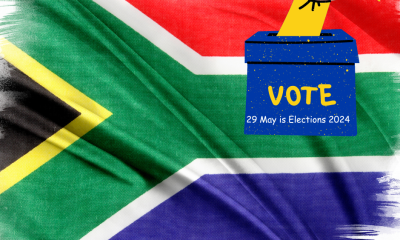
 Elections4 months ago
Elections4 months agoAnalysis: Why South Africa’s Opposition May Struggle to Unseat the Ruling ANC



